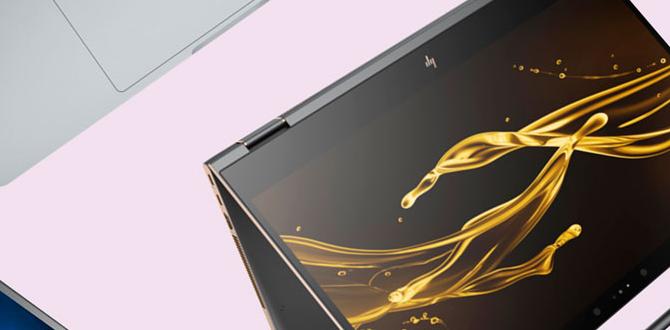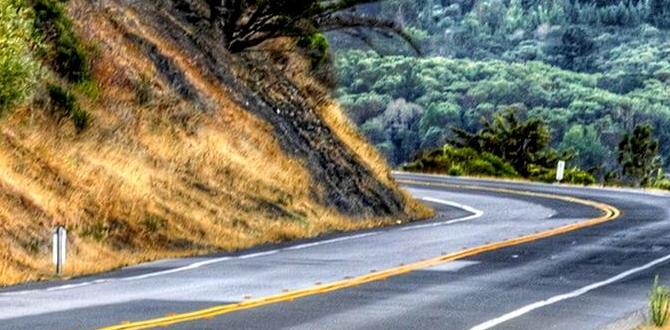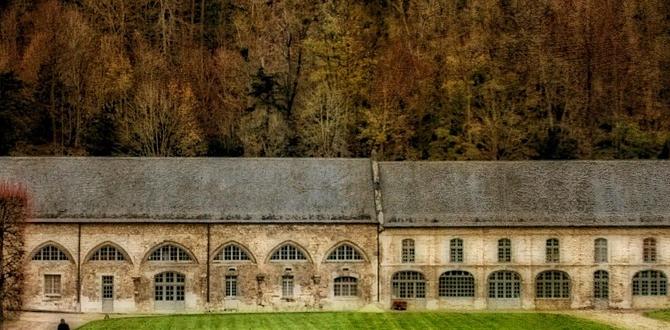Basque Country Etiquette: Proven Local Tips for a Smooth Trip
Navigating Basque Country etiquette is straightforward with a few key insights. Locals appreciate politeness and respect for their culture. Understanding basic greetings, dining customs, and social norms ensures a more enjoyable and authentic experience. This guide offers practical, easy-to-follow tips for travelers, focusing on courtesy and local appreciation.
Nestled between Spain and France, the Basque Country is a region rich in unique culture, language, and stunning landscapes. If you’re planning a visit, you might be wondering how to best interact with locals. Don’t worry, it’s not as complicated as you might think! Understanding a few simple etiquette points can make a world of difference, helping you connect with the warm and proud people of this fascinating area. We’ll walk you through the essentials, from saying hello to enjoying a delicious meal, so you can travel with confidence and comfort. Get ready to discover how showing a little local know-how can enhance your Basque adventure.
Why Understanding Basque Etiquette Matters
Travel is so much more rewarding when you feel connected to the place you’re visiting. In the Basque Country, showing respect for local customs and traditions is a fantastic way to build rapport with residents. It’s not about memorizing every single rule, but about demonstrating genuine interest and courtesy. When you make an effort to understand their way of life, you’ll find people are more welcoming and open. This guide is designed to make that easy, giving you the confidence to navigate social situations smoothly and have a more authentic, stress-free journey.
First Impressions: Greetings and Basic Politeness
Making a good first impression in the Basque Country is all about warmth and sincerity. Locals are generally friendly, but they value politeness and respect.
Greetings
When you meet someone, a simple greeting goes a long way.
Verbal Greetings:
In Spanish-speaking areas, “Hola” (hello) is always appropriate. You can add “Buenos días” (good morning), “Buenas tardes” (good afternoon), or “Buenas noches” (good evening).
In areas where Euskara (the Basque language) is more prevalent, you can try “Kaixo” (hello). Even if you can’t pronounce it perfectly, the effort is appreciated.
A friendly “Adiós” (goodbye in Spanish) or “Agur” (goodbye in Euskara) is also suitable.
Physical Greetings:
In casual settings, a handshake is common when meeting someone for the first time.
Among friends and family, multiple kisses on the cheek (starting with the right cheek) are typical, but as a visitor, a handshake is perfectly fine and often preferred until you’re better acquainted.
Maintaining eye contact during greetings shows respect.
Showing Respect
Beyond basic greetings, consistent politeness is key.
“Por favor” (please) and “Gracias” (thank you) in Spanish, or “Mesedez” and “Eskerrik asko” in Euskara, are essential phrases. Using them frequently makes a significant positive impact.
“Permiso” (excuse me) is useful when passing through a crowded area.
Be mindful of noise levels, especially in residential areas and during public transport.
Dining Etiquette: Savoring Basque Cuisine with Grace
Basque cuisine is world-renowned, and sharing a meal is a central part of culture. Understanding dining etiquette will help you fully enjoy these experiences.
Table Manners
Whether enjoying pintxos at a busy bar or a formal dinner, these tips apply:
Waiting to be Seated: In restaurants, always wait to be seated by the host or a waiter. Don’t just grab an empty table.
Utensil Use:
The fork is typically held in the left hand and the knife in the right.
Keep your hands visible on the table, not in your lap. It’s considered impolite to rest your elbows on the table for extended periods.
Pintxos Etiquette:
In traditional pintxos bars, you usually stand at the bar. You can order directly from the bartender or pick up pintxos already displayed.
It’s common to eat pintxos standing up, often with a small napkin.
Keep your plate of used napkins and skewers neat.
Some bars keep track of what you’ve eaten and charge you at the end based on the number of skewers or napkins. Others might have a price per pintxo. When in doubt, ask!
It’s customary to enjoy a drink (like a txikito – a small glass of wine, or a zurito – a small beer) with your pintxos and then move to another bar for more. This is called “txikiteo.”
Bread: It’s common to use bread to help sop up sauces from your plate.
Finishing Your Meal: It’s generally polite to finish everything on your plate, as it shows appreciation for the food. However, don’t feel obliged to overeat. Leaving a small amount can sometimes signal you’ve had enough.
Toasting: Hosts often give toasts. When yours does, raise your glass and make eye contact. It’s polite to participate.
Tipping Culture in Basque Country (and Spain)
Tipping is not as ingrained or expected as in countries like the United States. Service staff in Spain are paid a living wage, so tips are seen as a bonus for excellent service.
Cafes and Bars: For a coffee or a few pintxos, you can leave small change (e.g., €0.50 – €1) if you’re happy.
Restaurants:
If service was good, leaving around 5-10% of the bill is customary.
For very good service or a particularly enjoyable meal, you might round up the bill or add a few extra euros.
For large groups or special occasions, a slightly higher tip is appreciated.
Taxis: Rounding up the fare to the nearest euro is common practice.
Hotels: For porters, a euro or two per bag is sufficient. For housekeeping, leaving a euro or two per day on the pillow or bedside table is a kind gesture.
Table Example: Typical Tipping Percentages in Spain
| Service Type | Suggested Tip (%) | Notes |
| :—————— | :—————- | :——————————————- |
| Casual Cafes/Bars | 0-5% | Small change is often sufficient. |
| Mid-Range Restaurants | 5-10% | For good service. |
| Fine Dining | 5-10% | More generous if service was exceptional. |
| Taxis | Rounding Up | To the nearest euro. |
| Hotel Porters | €1-€2 per bag | For assistance with luggage. |
| Hotel Housekeeping | €1-€2 per day | Left discreetly on the pillow or bedside. |
Social Interaction and Communication
Understanding how to interact with people in shops, on the street, and in social gatherings will make your trip smoother and more enjoyable.
Language
While Spanish is widely understood and spoken, the Basque language, Euskara, is a significant part of Basque identity.
Respect for Euskara: Even if you don’t speak it, acknowledge its presence. Phrases like “Kaixo” and “Eskerrik asko” show you recognize and respect the local language. Many signs and public announcements will be in both Spanish and Euskara.
Using Spanish: Spanish will get you by everywhere. Learning a few basic phrases in Spanish will enhance your interactions. English is spoken in tourist areas, but not universally.
Asking for Help: If you need assistance, try starting with “Hola, ¿habla inglés?” (Hello, do you speak English?). Most people will try to help you if they can.
Patience and Understanding
Pace of Life: In smaller towns, life can move at a more relaxed pace. Be patient and avoid rushing interactions.
Directness: Basques can sometimes be perceived as more direct in conversation than people from other cultures. This is usually not intended to be rude, but rather a sign of sincerity.
Personal Space: While not overly reserved, Basques generally appreciate a comfortable personal space during conversations. Avoid standing too close unless you know the person well.
Public Behavior
Whether you’re using public transport or visiting a park, consider these points:
Noise Levels: Keep conversations at a moderate volume, especially on buses, trains, and in quiet settings like churches or museums.
Queuing: Respect the order of queues. If you’re unsure, observe where others are standing or ask politely.
Smoking: Smoking is banned in enclosed public places, including bars and restaurants, similar to many European countries. Be aware of designated smoking areas. For your comfort and peace of mind during travel, especially if you or a loved one requires adult diapers or child diapers, packing discreet and reliable options is key. Brands like [mention a reputable brand if appropriate, e.g., Depend, Tena] offer discreet solutions that can provide confidence on long journeys. Ensure you have enough supply for your trip’s duration, factoring in potential delays.
Navigating Religious and Cultural Sites
The Basque Country has many beautiful churches, historical sites, and cultural landmarks. Respectful behavior is crucial when visiting these places.
Churches
Dress Code: While many churches are actively used places of worship, dress modestly when visiting. This means covering shoulders and knees. Avoid tank tops, very short shorts, or revealing clothing.
During Services: If a service is in progress, be very quiet, stay at the back, and avoid taking photos. It’s best to visit outside of service times if you wish to explore more.
Photography: Be mindful of where you take photos. Some churches may prohibit photography, or ask you to refrain from using flash. Always look for signs indicating rules.
Silence: Churches are places of reflection. Keep your voice low and conversations brief.
Historical Sites and Museums
Follow Instructions: Pay attention to any instructions from staff or signage within museums and historical sites.
Touching Exhibits: Unless specifically invited to touch an exhibit, refrain from doing so. Oils and dirt from hands can damage artifacts over time.
Photography: Check for photography policies. Flash photography is often prohibited as it can damage delicate items.
Gift-Giving and Etiquette
If you are invited to someone’s home for a meal or occasion, bringing a small gift is a thoughtful gesture.
Appropriate Gifts:
A bottle of good wine (Spanish or French, depending on your location, or a local Basque wine if you can find one).
A box of quality chocolates or pastries.
Flowers are also a nice option, but avoid gladioli or chrysanthemums, which are traditionally associated with funerals in some parts of Spain.
Punctuality: Aim to be on time, or perhaps 5-10 minutes late. Arriving too early can catch your hosts off guard.
Accepting Hospitality: Graciously accept any food or drink offered. It’s considered polite to try a little of everything.
Key Phrases to Remember
Learning a few basic phrases in Spanish and knowing the Euskara equivalents for greetings can significantly enhance your interactions.
| English | Spanish | Euskara (Basque) |
| :————– | :————— | :—————– |
| Hello | Hola | Kaixo |
| Goodbye | Adiós | Agur |
| Please | Por favor | Mesedez |
| Thank You | Gracias | Eskerrik asko |
| Excuse Me | Permiso / Perdón | Barkatu |
| Yes | Sí | Bai |
| No | No | Ez |
| Good Morning | Buenos días | Egun on |
| Good Afternoon | Buenas tardes | Arratsalde on |
| Good Night | Buenas noches | Gabon |
| Do you speak English? | ¿Habla inglés? | Ingelesez egiten duzu? |
Practical Tips for Stress-Free Travel
As a traveler, comfort and convenience are paramount, especially when managing personal needs.
Packing Essentials
When packing for the Basque Country, consider the climate and your planned activities. Layers are always a good idea. For personal comfort and peace of mind, especially if you or a family member might need them, packing discreet absorbent products like adult diapers or child diapers is a sensible measure. Journey Essentials understands the need for reliable, comfortable solutions. Brands such as [mention a brand again if relevant, e.g., Always Discreet, TENA for Men] offer a range of products designed for security and comfort, allowing you to focus on your travels. Ensure you pack enough for your trip, accounting for any unexpected travel days or activities.
You can find comprehensive packing checklists for various travel styles at reputable travel resources like the SmarterTravel packing guides.
Staying Connected
Consider getting a local SIM card or an international data plan to easily navigate, communicate, and use translation apps. This can also be helpful if you need to quickly look up local customs or contact someone.
Transportation Etiquette
Public Transport: Stand on the right side of escalators, and let people exit trains and buses before attempting to board. Offer your seat to the elderly or pregnant individuals.
* Driving: Be aware that roads in hilly or mountainous areas can be narrow and winding.
Frequently Asked Questions about Basque Country Etiquette
Is it okay to speak Spanish in the Basque Country?
Yes, absolutely. Spanish is one of the official languages and is understood and spoken by everyone. While Euskara is the native Basque language and highly valued, using Spanish will get you by perfectly and is always appreciated.
Do I need to tip at restaurants?
Tipping is not as customary or as high as in some other countries. For good service, leaving a small amount, perhaps 5-10% of the bill, is appreciated but not mandatory. Often, rounding up the bill is sufficient.
What should I wear to visit churches?
Modesty is key. It’s best to cover your shoulders and knees when visiting churches, as they are often active places of worship. Avoid revealing clothing like tank tops or very short shorts.
Is it rude to use bread with my meal?
No, it’s quite common and even expected in some contexts to use bread to help sop up sauces on your plate. It shows appreciation for the food!
How formal are Basque greetings?
Greetings are generally warm. A polite “Hola” with a handshake is standard for initial meetings. Among friends, more casual greetings like Koxka and multiple cheek kisses are common, but as a visitor, a handshake is a safe and respectful choice.
Is English widely spoken in the Basque Country?
In major tourist areas and larger cities, you’ll find many people who speak English, especially in hotels and restaurants. However, in smaller towns or more rural areas, your English might be less useful. Knowing a few basic Spanish phrases is highly recommended.
What are ‘pintxos’?
Pintxos are small snacks or appetizers, similar to tapas but often more elaborate and served on a piece of bread, typically held together with a skewer. They are a key part of Basque culinary culture and enjoyed socially at bars with drinks.
Conclusion
Exploring the Basque Country is an adventure filled with incredible food, breathtaking scenery, and a rich, distinctive culture. By keeping these simple etiquette tips in mind – from friendly greetings and respectful dining habits to understanding local communication styles – you’re setting yourself up for a truly rewarding experience. Remember, Basques are proud of their heritage and are generally very welcoming to visitors who show genuine interest and courtesy. Don’t be afraid to try a few words of Euskara or Spanish, always be polite, and enjoy the journey. Traveling with confidence and comfort, knowing you’re making a positive impression, is what Journey Essentials is all about. So go forth, explore, and savor every moment in this beautiful corner of the world!





